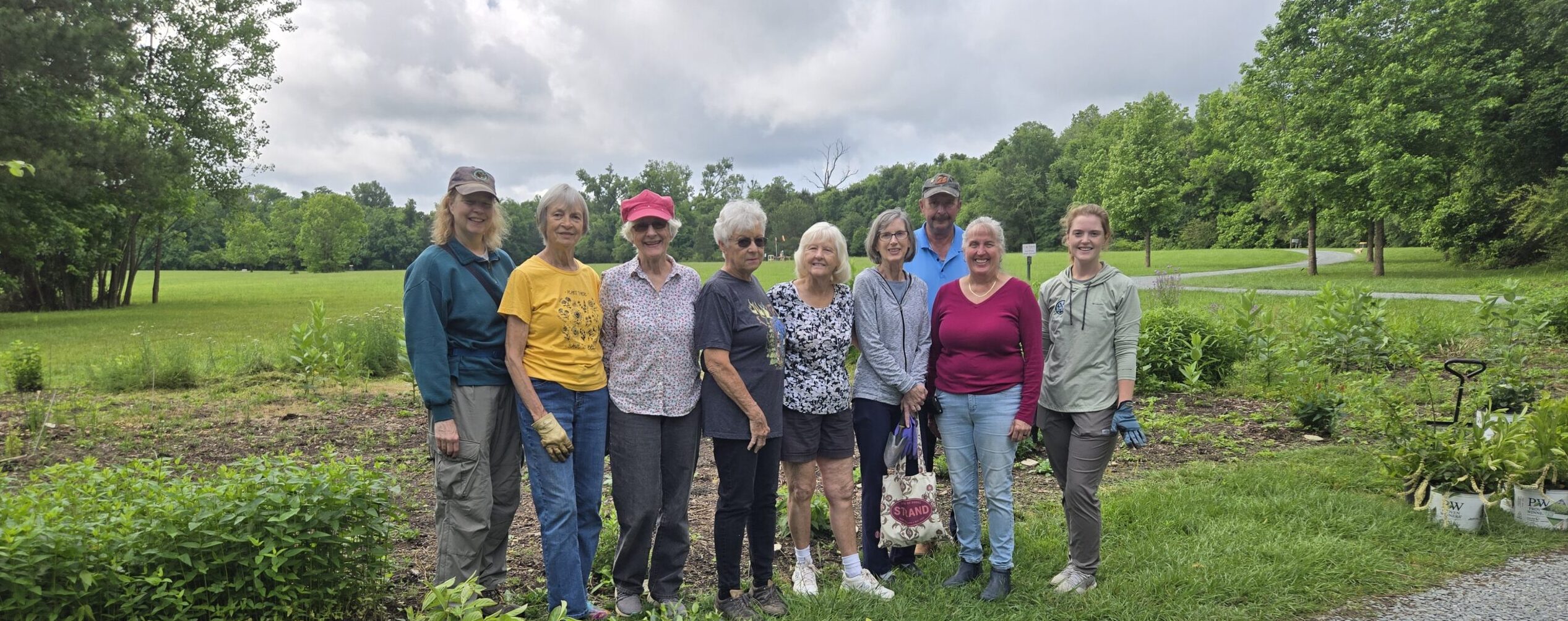
Keep South Carolina Wild
May 30, 2025
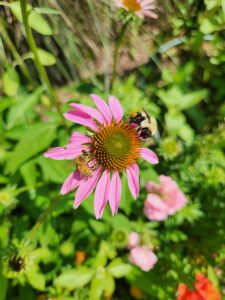
As development increases, the resulting habitat loss is a major challenge that affects many pollinator species in South Carolina. Pollinator gardens provide pollinators with critical habitat that can beautify any space, increase native biodiversity, increase pollination services and biological control of pest insects, and provide community engagement and learning opportunities.
These gardens create and enhance habitat for pollinators and other wildlife by incorporating native flowering plants, which are important sources of food and shelter for bees, butterflies, and countless other species. Native plants are adapted to the region’s climate and require less watering, fertilizer, and use of pesticides. Pollinators also require specific native host plants which provide nutrition and habitat to their larval and adult stages. Milkweed, the host plant for monarch butterflies, was planted in each garden to give the imperiled species a place to lay its eggs and to provide the caterpillars a source of food.
By installing the gardens in public areas, they also serve as demonstration sites to allow community members to connect with imperiled pollinator species and play a part in conservation efforts by replicating the gardens at their own homes. Educational signage was also installed with each garden that displays information about pollinator species, their importance, and how native plant gardens help them.
The first garden installation took place at the Lancaster County Library, and volunteers of all ages joined to plant a variety of native plants, including a group of high school students from Lancaster High School’s Agriculture department. The library’s garden is also on its way to becoming a Certified Wildlife Habitat, which provides natural sources of food, water, cover and places to raise young and is maintained in a sustainable way that incorporates native plants, conserves water, and does not rely on the use of pesticides.
At Andrew Jackson State Park, park staff and volunteers helped to clean up the existing pollinator garden and planted more native plants. The Friends of Andrew Jackson State Park donated a pollinator house to the park’s garden, which provides nesting sites for pollinators that nest in cavities or burrows.
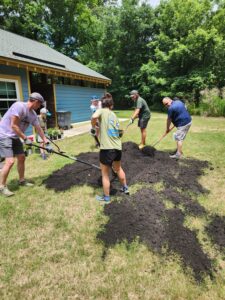
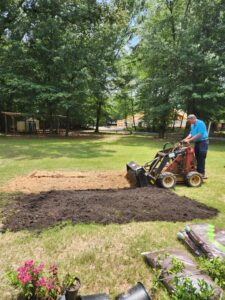
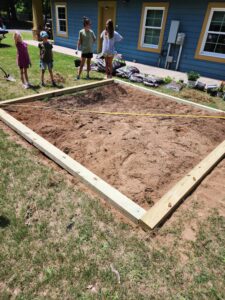
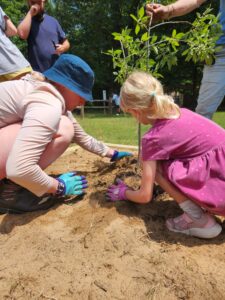
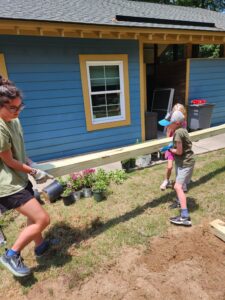
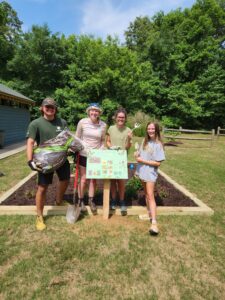
Camp Canaan is located on a 100-acre island along the Catawba River in Rock Hill, and the pictures above show the progression of a bare patch of grass to a brand new garden bed! The camp staff plans to incorporate the new garden into their environmental education program for their youth attending summer camp.
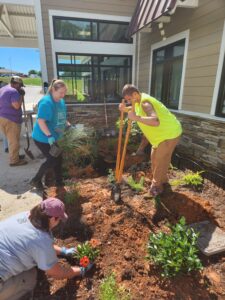
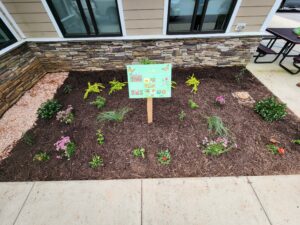
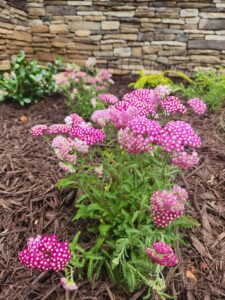
The Catawba Nation is the only federally recognized tribe in South Carolina, and SCWF is honored to partner with the reservation’s Wildlife and Habitat Program on multiple conservation projects, including Project Prothonotary. The pollinator garden was installed just outside the reservation’s food distribution center, which holds a weekly farmer’s market for those who live on the reservation. Juncus, commonly known as rush, is a culturally significant plant that was added into the garden, as well as the endangered Schweinitz’s sunflower.
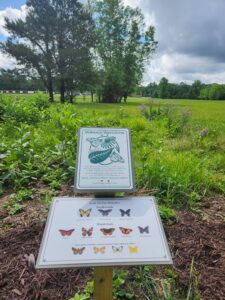
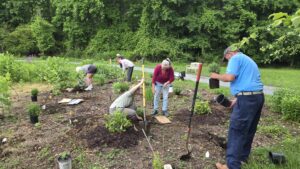
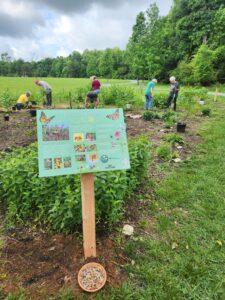
Sun City Carolina Lakes Community is a Certified Community Wildlife Habitat, and the pollinator garden is just one of the many ways their community is making a difference for wildlife. Visitors enjoy seeing monarch butterflies fluttering around in the garden, and we even spotted an adult monarch laying eggs on the milkweed that was planted years ago! Each garden also received a pollinator waterer, which is made using a shallow terra cotta saucer filled with stones for pollinators and insects to easily crawl out after getting a drink of water or cooling off.
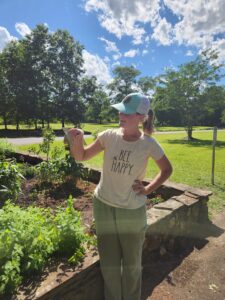
SCWF would like to thank Skyline Design and Landscape for their assistance in the design and installation of the garden, as well as providing all the native plants and materials. SCWF is also grateful for the following partners and volunteers for their involvement: Andrew Jackson State Park, Camp Canaan, Catawba Nation, Lancaster County Library, and Sun City Carolina Lakes Community
This project was made possible by Duke Energy’s Catawba-Wateree Habitat Enhancement Program.


Thank you for helping SCWF Keep SC Wild by bidding in our annual fundraising auction! This year’s auction raised $92,280 in support of our education and conservation programs, making it...

A Victory for Wildlife, Public Lands, Outdoor Recreation, and Job Creation For Immediate Release, from NATIONAL WILDLIFE FEDERATION WASHINGTON, D.C. (June 17, 2020) — The Senate’s passage of the Great...
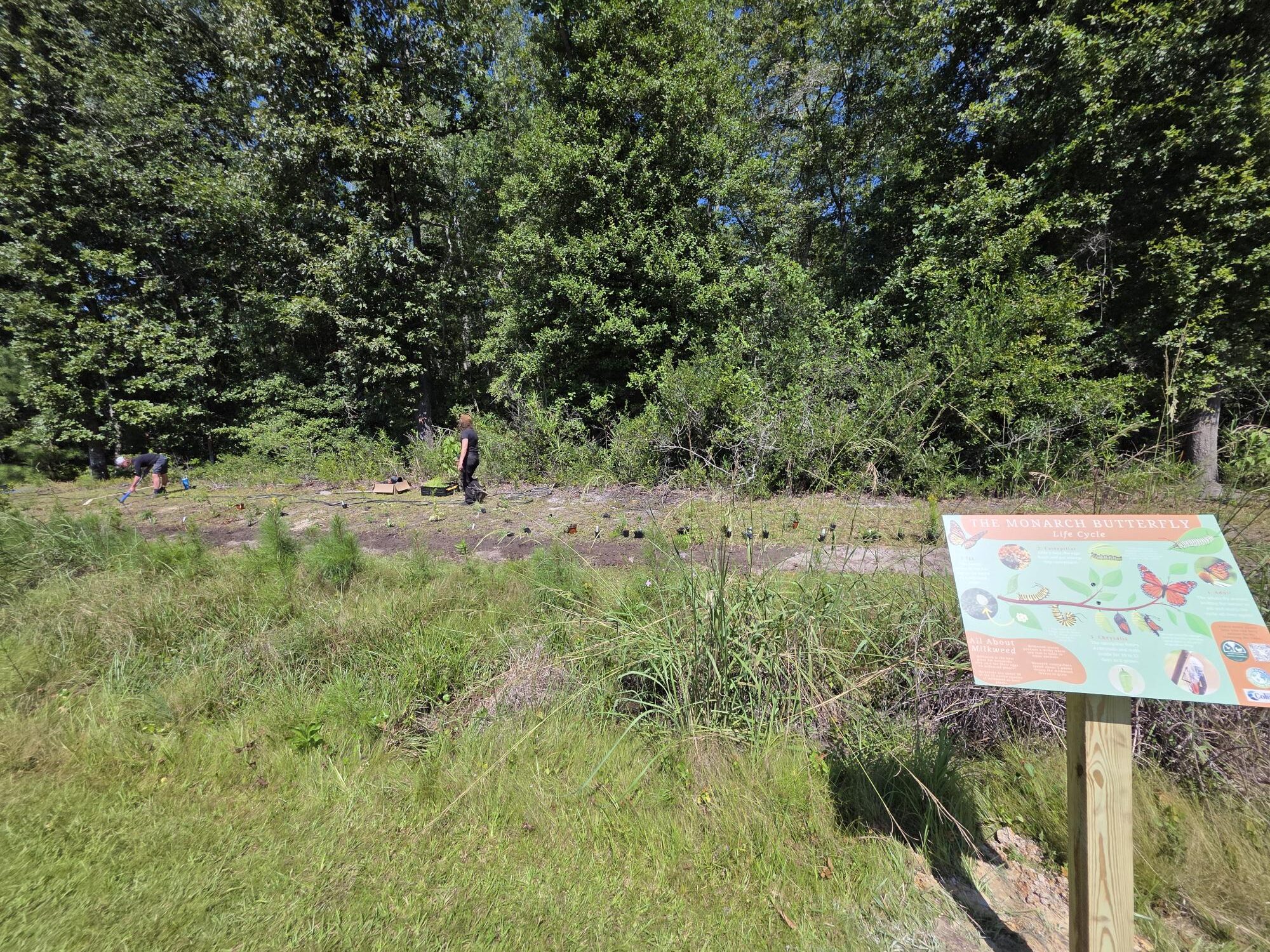
SCWF held an EcoLeaders event at Sesquicentennial State Park in Columbia on Monday, July 21st, where youth planted 750 native plants for wildlife habitat, installed a nesting box for Eastern...